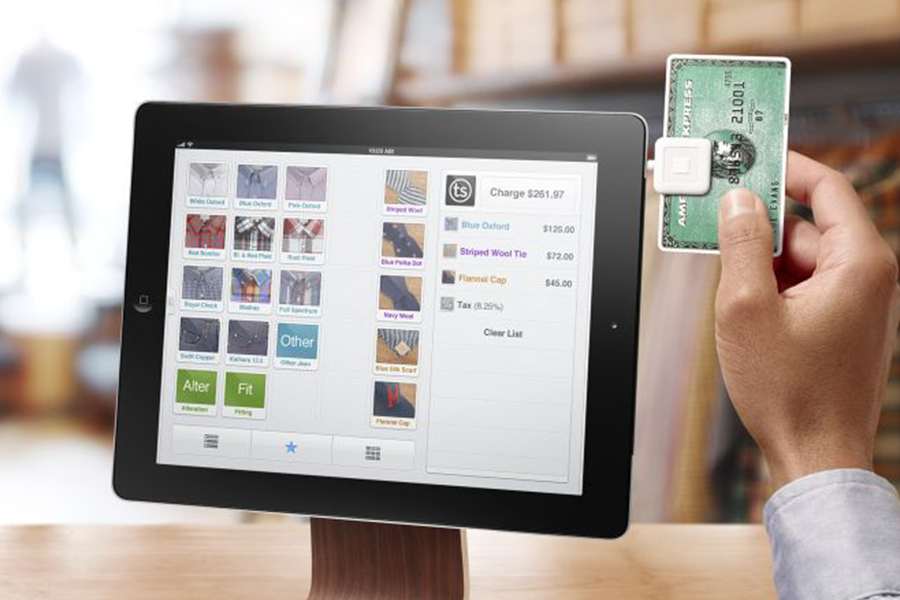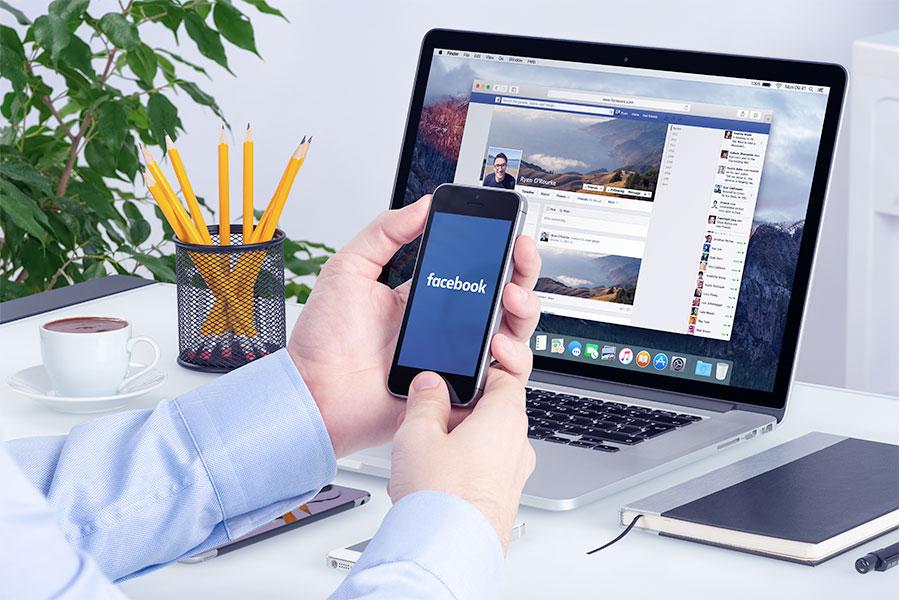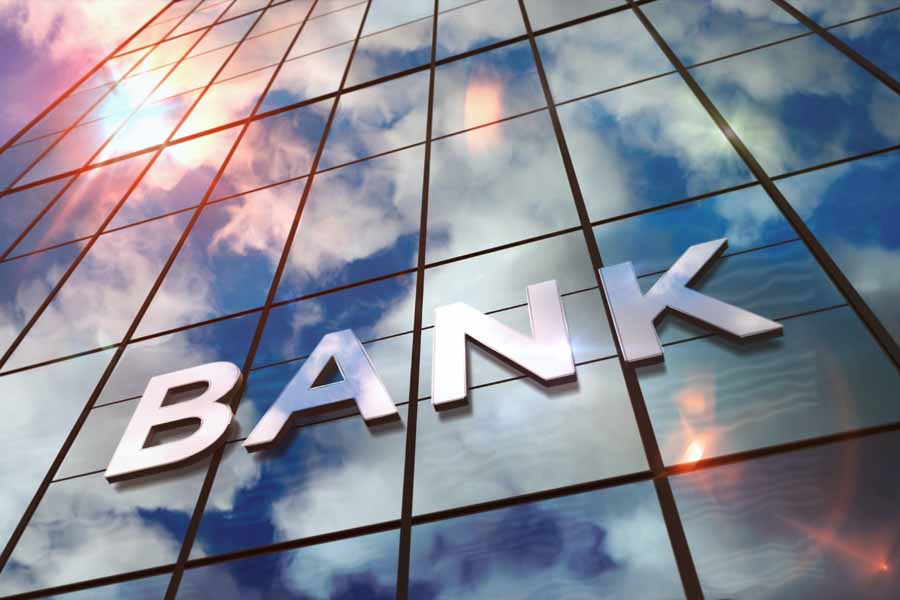9 Best POS Systems for Small Business in 2024

A point-of-sale (POS) system is a combination of software and hardware that centralizes sales, payment processing, inventory management, and customer relationship management (CRM). The best POS systems also include robust tools for omnichannel sales, vendor management, employee management, and customer loyalty. Many such software are free, though others cost as much as $200 per month for a single terminal.
We evaluated more than 25 POS systems across 32 data points, and found that the best point-of-sale systems for small businesses are:
- Square: Best overall and best free
- Toast: Best restaurant POS
- Shopify: Best retail and ecommerce POS
- Lightspeed: Best for inventory
- KORONA POS: Best for choice of payment processor
- Clover: Best for mobile sales
- TouchBistro: Best multi-register food and beverage POS
- POS Nation: Best for age-restricted products
- IT Retail: Best grocery and market POS
Best Point-of-Sale Systems for Small Business Compared
Why You Can Trust Us
The software in this article was selected by Meaghan Brophy, Mary King, and Brigitte Hodge. Together, we have more than two decades of hands-on experience working in and managing retail and restaurant businesses.
Personally, I have over five years of experience evaluating point-of-sale systems, about a decade of independent retailing and small business experience, so I’ve used several of these systems first-hand in addition to testing for this article. Our team regularly updates and fact-checks this piece to provide the latest information.
Square: Best POS System for Small Business
Pros
- Free POS
- Easy to use, fast set-up
- Can grow with your business
Cons
- Locked into Square for payment processing
- Limited phone support
- Limited customization options, limited in-depth reporting
Square is the best POS system for most small businesses because of its affordable price point, mobile capabilities, and POS tools for retailers, restaurants, and service industries.
All of Square’s POS systems―General, Retail, Restaurants, and Appointments―offer a free subscription plus an online store platform. There are additional premium plans to support growth, all ranging from $29 to $60 per month.
Square also tops our lists of:
- Monthly software fees: $0–$60
- Installation fee: $0, installation is do-it-yourself (DIY)
- Contract length: Month to month
- Processing fees:
- In-person: 2.6% + 10 cents
- Online: 3.5% + 15 cents
- Custom rates available for businesses processing more than $250,000 annually
In addition to the hardware options above, you can download the Square app on any iPhone or iPad and key-in payments or connect a card reader.
Toast: Best Restaurant POS
Pros
- Free starter POS
- Pay-as-you-go plans
- Robust workforce management
- Automated tip pool management
- Flexible online ordering and delivery tools
Cons
- Locked into Toast for payment processing
- Two-year contract
- Operates on proprietary hardware
- Many features only available in pricier plans
Toast is a powerhouse cloud-based POS built specifically for the restaurant industry. With a free starter POS and pay-as-you-go options for hardware, small restaurants can start with Toast for no upfront cost and increase their POS footprint as their businesses grow.
At the same time, enterprise-level restaurants will feel supported by Toast’s integrated online ordering, delivery management, marketing, and employee management tools. This is why we love Toast for both new and growing restaurants.
Toast is our top choice for:
- Monthly software fee: $0–$69 or custom quote
- Installation fee: Optional; starting at $250
- Contract length: Two years
- Processing fees:
- In-person:
- Pay-as-you-go: 3.09% + 15 cents
- Standard: 2.49% + 15 cents
- Online: Not disclosed
- Custom rates available for high-volume businesses
- In-person:
All of Toast’s hardware is industry-grade and IP-rated to withstand steam and dust intrusion. Toast handheld terminals, including the popular Toast Go 2, are drop-tested to withstand a restaurant environment.
Shopify: Best Omnichannel Retail POS
Pros
- Smart omnichannel and inventory tools
- Social media selling
- Easy to use; intuitive interface
- Best-in-class ecommerce platform
Cons
- Offline mode can be glitchy
- Free POS has limited features
- Pricey; POS requires ecommerce subscription
- Not compatible with high-risk businesses
Shopify POS is a great option for retailers that either already use a Shopify ecommerce store or are looking to sell online and in person. With Shopify, you can opt for either the standalone POS product, which comes with a very basic online store, or combine Shopify POS with Shopify’s ecommerce solution for a true omnichannel setup.
Shopify is known primarily for its online selling tools, with a robust ecommerce platform and integrations for selling on your social channels. However, its point-of-sale product is equally as impressive. This POS outscored the others on this list for its register features, including a customizable checkout interface, flexible payment options, and offline selling.
Shopify also tops the list in our guides to:
Since our Last Update
Shopify POS is now available as a standalone product. Previously, an ecommerce subscription was needed to access Shopify’s point-of-sale software.
- Monthly software fees:
- POS: $0–$89 per location
- Ecommerce (optional): $29–$299
- If you subscribe to an ecommerce plan, you receive Shopify Lite POS for free. However, if you have a brick-and-mortar location we recommend upgrading to POS Pro at $89/month.
- Installation fee: $0, installation is DIY
- Contract length: Options for month to month, annual, or multiyear
- Processing fees:
- In-person: 2.4%–2.7%
- Online: 2.4%–2.9% + 30 cents
Learn more about Shopify’s fees and how much it costs to run your business using Shopify.
Shopify POS is app-based and works on iOS and Android devices including iPhone 7 or higher, iPad Air Gen 2 or higher, iPad Gen 5 or higher, iPad mini Gen 4 or higher, all iPad Pro models, and Android devices running version 10.0 or higher.
Card readers, iPad stands, and other accessories like cash drawers and barcode scanners can all be purchased through Shopify, including the below:
Lightspeed: Best POS for Inventory Management
Pros
- 14-day free trial
- Detailed analytics tools
- Robust, integrated ecommerce platform
- 24/7 customer support and onboarding
- Granular matrix inventory management
Cons
- User interface can take time to learn
- Pricey
- Shipping integrations are limited
Lightspeed Retail is the best retail POS system for businesses with large or complex inventories, including specialty shops needing to manage custom orders. The software lets retailers create product bundles, categorize with multiple variants, and manage purchase orders with a built-in catalog. Lightspeed also features one of the most sophisticated analytics platforms for small businesses.
In addition, Lightspeed offers a restaurant POS, which also has robust, automated inventory management including ingredient-level tracking and “1-click” vendor orders that you can place right from the Lightspeed dashboard. Learn more in our Lightspeed Restaurant review.
Lightspeed is also our top recommendation for:
Monthly software fees:
- $69–$269 for retail
- $69–$399 for restaurants
(varies by POS type, payment processor, and payment plan)
Lowest rates available with annual billing
- Installation fee: $0
- Contract length: One year
Processing fees:
- In-person: Lightspeed Payments – 2.6% + 10 cents; other processors vary
- Online: Lightspeed Payments – 2.6% + 30 cents; other processors vary
- Custom processing rates available with certain plans and sales volumes
Lightspeed runs on iPads and desktop computers. All Lightspeed hardware is quote-based. You can purchase the terminals, card readers, and other accessories you need directly from Lightspeed.
In the News: Lightspeed Acquisitions
Over the past several years, Lightspeed has acquired several other POS systems, including ShopKeep, Vend, and Upserve. Lightspeed has baked many of the features from these products into its offerings, and at the time of publication, still offers versions of these products.
Lightspeed has also acquired Ecwid, a popular shopping cart platform, to improve its native ecommerce tools, which are free for certain POS plans.
KORONA POS: Best for Choice of Payment Processor
Pros
- Choice of payment processor
- Affordable; no long-term contract
- Supports event and ticketing sales
- Loss prevention features
Cons
- Ecommerce site requires WooCommerce integration
- Reporting module has a learning curve
- Limited integrations
- Dated interface
KORONA is a cloud-based POS that is payment processor agnostic, meaning it can work with any processor of your choosing. This is ideal for businesses wanting to shop around for the lowest rates, or those with special processing needs such as high-risk merchants—vape shops, cannabis dispensaries, and stores that sell a high volume of high-ticket items.
Additionally, it is equipped with ID scanning and includes loss prevention tools.
This affordable and flexible POS comes with excellent customer support and operates on a variety of desktop and mobile devices, so you likely can use some hardware you already own.
In our evaluation, KORONA earned high marks for the sheer number of business types it supports, from small retail shops to high-risk businesses and ticketed venues. Its ability to integrate with virtually any payment processor also earned it points.
KORONA is a top choice for:
- Monthly software fee: $59–$69
- Installation fee: $0; guided installation and training are included with your KORONA account
- Contract length: Month to month
- Payment processing fees: Varies by processor; KORONA is processor agnostic, so you can use whatever processor you prefer
- Modules available for food and beverage businesses offering tableside service, retailers needing advanced inventory, invoicing, ticketing, franchise management tools, and custom integrations. Additional monthly fees range from $10 – $50 per add-on.
Uniquely, KORONA has an unlimited free trial option. While you can’t integrate a payment processor, and there are low daily transaction limits during the trial, you can take your time with customizations and save all of your data for later.
KORONA offers a variety of countertop and mobile POS tablets, along with peripherals, including tickets and inventory scanners, cash drawers, and receipt printers. All pricing is custom-quoted. Leasing plans are available, as are payment plans for outright purchases.
Clover: Best for Mobile Sales
Pros
- Month-to-month contracts
- Built-in payment processing
- Variety of LTE and Wifi-enabled hardware
Cons
- Contract terms and processing rates vary by reseller
- Inventory management requires third-party integration
- The reseller network can be tricky to navigate
Clover is a mobile-friendly cloud POS system owned by payment network Fiserv. Any merchant services provider that operates on the Fiserv network can sell the Clover POS with its merchant services software built in. Many small businesses purchase their Clover POS systems from their bank, or directly from their preferred merchant services provider.
The Clover POS operates on Clover-built hardware, which are designed to be light, mobile, and industry-grade to withstand high-volume use. Nearly all Clover hardware can communicate via cellular LTE signals or Wifi, making this system a terrific pick for mobile businesses needing robust POS tools. Just take care with your contract terms; the various resellers can have widely varying terms of service for their customer support, contract length, and processing fees.
Clover fees are more complex than other providers on this list. In addition to separate pricing tiers for retailers and restaurants, Clover also offers subscriptions that combine the cost of hardware and software into a single monthly fee. You can see an even more detailed breakdown of Clover Pricing in our Clover POS review.
Here is the current pricing if you purchase Clover through its website:
- Monthly software fees: $0–$89.95
- In-person processing fees: 2.3%–2.6% + 10 cents
- Online processing fee: 3.5% + 10 cents
Each device after your first one adds an additional monthly fee, except for Go readers. The specific rate varies by your software plan.
Top-ranked Square is also a highly mobile POS. Clover is our top-ranked Square alternative, if you need a POS with more wide-ranging mobile hardware. Check out our ranking of Square competitors for more information.
TouchBistro: Best Multi Register Food & Beverage POS
Pros
- Self-installable iPad POS system
- Easy to use
- Simple delivery tools
- Supports multiple payment processors
- Affordable
Cons
- Requires one-year contract
- Loyalty and online ordering cost extra
- Inventory requires regular manual entry to stay updated
- Best for high-volume, multi-register operations
TouchBistro is an incredibly easy-to-use iPad-based POS that, like the competing system Toast, is designed specifically for food and beverage businesses. Because TouchBistro is easy to use and has an interface that’s similar to operating an iPhone, it’s ideal for businesses with lots of employees—and even high turnover.
A low price point, user-friendly interface, and templated mobile reporting make TouchBistro ideal for high-volume food and beverage businesses like food trucks, coffee shops, and restaurants with multiple registers.
- Monthly software fee: $69 per terminal
- Installation fee: $0
- Contract length: One year
- Add-ons available for online ordering, loyalty programs, gift cards, marketing, and online reservations
- Processing fees:
- In-person processing: Varies by processor
- Online processing: Varies by processor
- TouchBistro offers built-in TouchBistro payments powered by Chase. It also integrates with TB Payments, Square, Worldpay, TSYS, and more
POS Nation: Best for Selling Age-restricted Products
Pros
- Secure age verification tools
- Robust inventory management tools
- Options for month-to-month or paid upfront hardware and software subscriptions
Cons
- Locked into POS Nation for payment processing
- Management learning curve can be steep
- Pricier than others on this list
POS Nation is a massively functional POS system with comprehensive POS software for markets, liquor stores, and convenience stores. POS Nation has built-in age verification prompts and supports both manual birthdate entry and ID barcode scans. These tools are ideal for businesses that sell a high volume of age-restricted products. When the fines for violating age restrictions can range from $500 to $5,000, it’s worth it to spend the money on the best tools for the job.
POS Nation’s pricing provides the flexibility to pay $149 per month for a month-to-month hardware and a software subscription, or to pay $999 for your hardware upfront plus a substantially lower monthly fee for POS software and customer support. So retailers that lack a large sum for startup funds can access POS Nation’s excellent tools.
POS Nation offers two pricing options; one option is the Flex Monthly plan, a monthly software and hardware subscription currently priced at $149 per month. Alternatively, you can opt for the Freedom plan, where you pay $999 upfront for hardware and then pay a monthly fee for the POS software and customer support. The last quote we received for monthly fees for the Freedom plan was $39 per terminal monthly.
You can also request a custom quote tailored to your business needs.
POS Nation also charges some monthly fees for add-ons, such as:
- Ecommerce integrations: $15 per month
- QuickBooks integration: $15 per month
- Cloud backup: $12 per month
- Remote back office: $20 per month
IT Retail: Best for Grocery, Markets & Specialty Food Stores
Pros
- Scale integration and industry-grade hardware (including self-checkout kiosks)
- Works with multiple payment processors
- Strong loyalty features
Cons
- Pricey hardware; requires custom quote
- No fuel pump or deli/cafe features
- No free trial
IT Retail is a robust POS system designed by grocers specifically to support independent food markets. The system comes packed with the rugged hardware necessary in a grocery environment, such as scale integration for selling goods by weight, bottle deposit management, automated rewards, and self-checkout options.
The system and its native payment processor can also handle EBT, SNAP, and eWIC payments. None of the other systems on this list can process all of these payment types.
Additionally, IT Retail includes ecommerce integrations, like Mercato and Instacart, for online ordering and delivery services. The software also supports the widest variety of self-checkout hardware on this list, including a contactless mobile self-checkout system through FutureProof.
All of these industry-specific features make IT Retail the best POS for grocery stores, markets, and specialty food shops.
- Monthly software & hardware fee: From $199
- Installation fee: Optional; custom-quoted
- Contract length: Varies depending on plan, multiple plans have no long term contracts
- Payment processing: Varies by processor; choose from IT Retail Payments or Fiserv
IT Retail has plans so you can bundle hardware costs into your monthly fee, or purchase separately. All hardware is custom-quoted. The company offers widescreen touch PCs, thermal receipt printers, laser barcode scanners, customer-facing displays, PIN pads, scanner scales, and more.
You can also use its mobile app to manage inventory through your smartphone.
Packages and plans are customized to each retailer; however, there is a feature on the IT Retail website where you can build and price your plan based on your business type, number of registers, and the hardware and features you need.
How to Choose a POS System for your Small Business
Choosing a POS system is one of the most critical decisions you’ll make for your small business. The right POS can help you process payments, track and grow your sales, and manage your inventory—all in one system. To ensure that you choose the right one, consider your needs, budget, and how much time you can spare to learn how to use the system.
Step 1: Decide What POS Functions You Need
Modern POS systems have practically any function you think of. But they are only worth paying for if you will actually use them. These are some of the most common POS functions small businesses can benefit from:
- Sales Tracking: A POS system’s basic function is to log sales. Your system will allow you to open checks and add products to them. Your POS will track your sales by hour, product type, and the staff member who handled the sale.
- Payment Processing: A POS will process various payment types, from cash to gift cards and digital payments.
- Inventory Management: Your POS software will track your stock levels as you sell items. The best POS systems alert you to low stock levels and prompt you to place resupply orders.
- Reporting and Analytics: The biggest benefit of using a POS is the ability to analyze your sales, comps, voids, discounts, and other data to identify patterns and forecast future business.
- Customer Relationship Management: You’ll be able to compile customer contact information and log their purchase histories.
- Marketing and Loyalty: Your customer data can feed internal marketing and loyalty systems to create targeted promotions for different customer segments.
- Employee Management: Your POS will track employee hours, sales productivity, and—if applicable—tips. You can also assign specific permission levels so employees only have access to the tools they need to complete their tasks.
- Ecommerce and Multi-channel Sales: Many POS systems integrate with online sales channels, incorporating digital sales and physical sales into centralized reports.
- Multi-store Management: Many cloud POS systems have a centralized management dashboard that enables you to view reports and make adjustments to multiple locations’ POS configurations.
- Third-party Integrations: To allow further customization, most systems integrate with additional third-party software for accounting, employee scheduling, payroll, and other management functions.
Analyze your operation and make a list of what tasks you need help automating. Most businesses see the biggest gains in time saved from employee scheduling tools and inventory management functions.
Step 2: Set a Budget
Your next step is to set a budget. You’ll want to consider three types of costs: upfront costs, ongoing monthly software fees, and payment processing fees. There are POS systems available at every budget, from $0 upfront and $0 per month, up to thousands of dollars. Even with a small budget, you rarely need to skimp on POS software functions. The biggest cost differences come from hardware and the type of installation your POS requires (industry-grade hardware and a locally installed server are the most costly; iPad displays and cloud installation are very affordable).
If you anticipate the ballpark prices below, you’ll rarely be surprised:
- POS upfront cost: $0 to $700+ for hardware and installation
- POS monthly software fees: $0 to $100+ per month
- Payment processing fees: 2.6% – 4% of credit, debit, and mobile wallet sales
If your budget is tight, you can save money upfront by opting for an iPad POS like Square (which offers a free baseline subscription), or choosing a system that allows you to pay as you go for hardware by opting into higher processing fees (like Toast).
Step 3: Schedule POS Demonstrations
With your budget and function list in hand, it’s time to see each system in action. Schedule demonstration calls with three to five systems that seem like a fit. Take notes during each demonstration, and don’t be afraid to ask questions to make sure the sales representative shows you the functions you are most curious about.
At the end of the demonstration, most POS providers will offer to send you a custom quote for your hardware, software, and installation that is based on your business’s unique needs. If you are considering a system that has built-in payment processing, your quote should also include your expected processing fees.
Compare the quotes you receive and your notes from each demonstration. Your ideal POS system will be the one that includes most of your desired functions within your budget. Depending on your POS provider, you may need to sign a service contract of one to two years. Though some POS providers—like Square and KORONA—don’t require a long-term contract at all.
How We Evaluated Point-of-Sale Systems for Small Businesses
We started with a list of over 25 POS systems. We then evaluated them by price, POS functions like check and order management, payment processing, and inventory management. We also looked at user reviews and, in many cases, demoed and tested the products ourselves.
Meaghan, Mary, and Brigitte also have experience using several of these POS systems in retail and restaurant environments, so we considered our first-hand experiences operating these systems along with our knowledge of what small businesses need to manage day-to-day operations.
Click through the tabs below to see the full evaluation criteria:
30% of Overall Score
We prioritized POS systems that include a free plan or free trial, affordable subscriptions, and additional plans so that you won’t grow out of the system. We also awarded points to systems with affordable integrated payment processing, flexible hardware options, and no restrictions on the number of users, inventory, and transactions. Finally, we penalized systems that require long-term contracts and hefty installation fees.
20% of Overall Score
Businesses need speedy and customizable checkout tools, easy customer management, mobility to sell anywhere, a process to track orders, and a way to process online orders. Because the way businesses operate has changed so much in recent years, we also considered contactless payments, integrated online ordering, and online store features.
15% of Overall Score
We prioritized POS systems with 24/7 phone support. We also considered help tickets and email or chat support, installation processes, and whether the system has an offline mode or hybrid installation so that you can continue operations when you lose internet access. Finally, we considered if the system has an online knowledge base, training videos, or a training mode to help bring new employees up to speed.
20% of Overall Score
We considered the overall quality of each system’s features, along with system stability, and security. We evaluated whether it offers a good value for its price point and standout features. Finally, we accounted for our experts’ personal experience using each system and interacting with customer service representatives (CSRs), its reviews, and the personal experience of other small business owners.
*Percentages of overall score
Meet the Experts
Best POS System Frequently Asked Questions (FAQs)
A point-of-sale (POS) system is the combination of software and hardware businesses use to ring up purchases and manage transactions. POS systems replaced cash registers, so they are sometimes also referred to as the “register” or “checkout.”
If you are accepting payments in person, you likely need a POS system. POS systems can range from a simple smartphone app and connected card reader to a full-blown countertop touchscreen register.
The best POS system for you depends on your business type and what functions you need the machine to perform. However, the best POS systems for small businesses offer decent functionality at a low price and can grow with your business.
According to our evaluations, the best POS systems are:
- Square: Best overall
- Shopify: Best for ecommerce and multichannel retail
- Lightspeed: Best for complex inventories
- Toast: Best for restaurants
The cheapest POS systems tend to be those that offer their POS software for only the cost of payment processing. Popular systems that follow this model include Square and Toast—though you can also find systems that offer free POS software without any integrated payment processing, like Loyverse.
However, software and processing fees won’t be your only POS costs. You’ll also need to consider hardware like touch screens and card readers. If you’re on a budget, iPad-based POS systems like Lightspeed and TouchBistro are good options.
There are types of POS systems for different business types and industries, and different hardware and tech configurations within each industry POS. For example, retailers, restaurants, cafes, and salons all need different functionality within their POS systems, so there is POS software designed for each.
You can also opt for POS apps and other mobile POS systems, a touch-screen vs desktop system, whether your POS is cloud-based, locally stored, or hybrid, and whether or not it is open-sourced. Most popular POS systems are cloud-based and can operate on a variety of mobile, touch-screen hardware, and sometimes desktop computers.
There are two major costs when buying a POS system: hardware fees and software fees.
Software fees are typically billed on a monthly or annual basis and can range from $0–$300 per month per terminal.
Hardware is typically an upfront cost of $250–$1,000 per terminal, though some POS systems, like Toast and Square, offer financing and payment plan options.
You will also want to consider payment processing fees and whether you will be using a processor that is built into your POS system or a third-party processor.
Finally, though most popular POS systems offer free DIY installation, more complex setups will require professional installation, which costs at least $500.
Bottom Line
The best POS systems provide small business owners more than simply a way to accept payments. POS trends such as mobile-first technology mean businesses can sell products and services anywhere, anytime. Artificial intelligence (AI) developments in POS software mean that instead of telling businesses how much product they have on-hand, POS systems can tell businesses exactly what they need to order and in what quantities.
The best POS software combines analytics and ease of use at a price point that is accessible for small businesses. Square POS is free to use, and its core features are powerful enough on their own that you may not even need the optional add-ons to build out the POS system. If you do opt to upgrade, you’ll still likely pay less than some other POS systems. Get a free account today.





